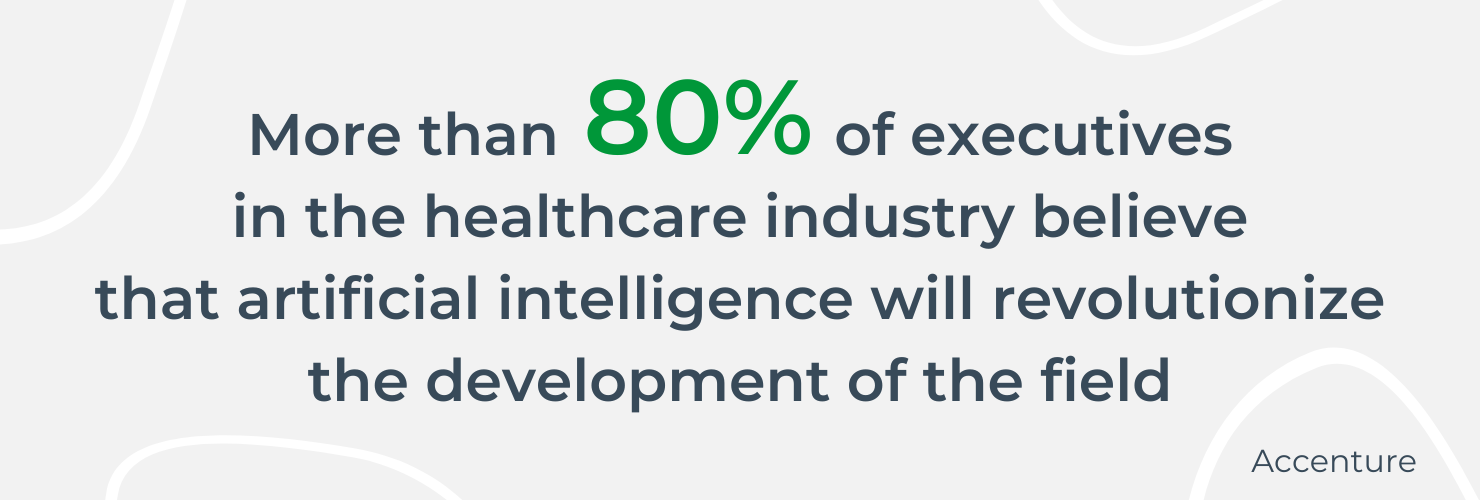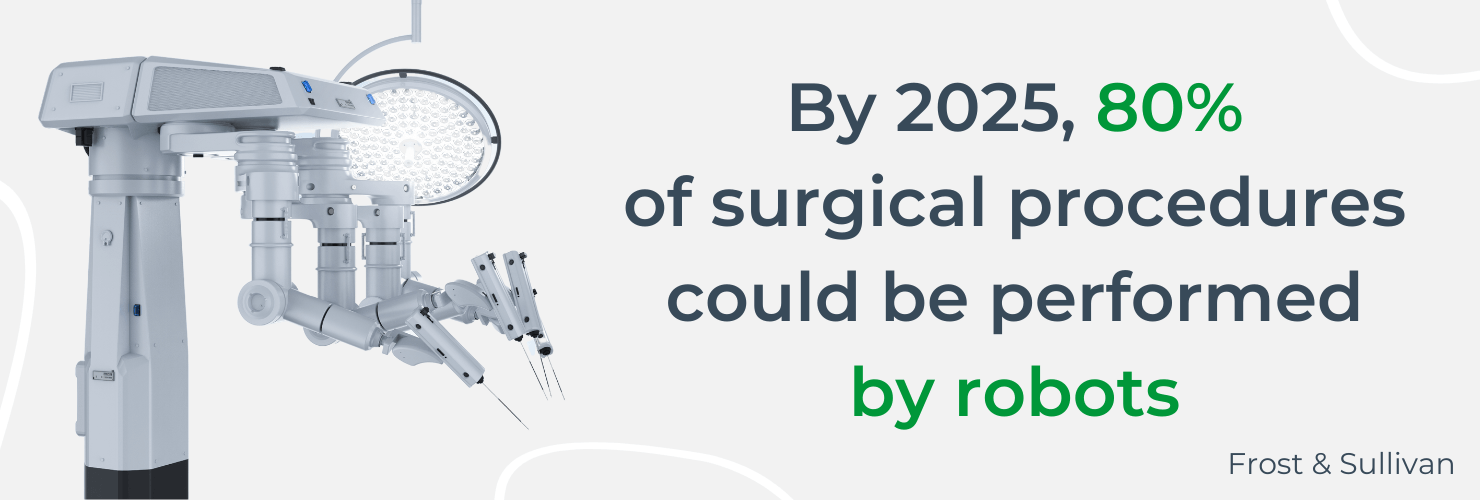
TABLE OF CONTENTS:
The healthcare industry is increasingly embracing digital transformation. According to Statista, the size of the digital health market is projected to reach $256.30 billion by 2027, with a compound annual growth rate (CAGR 2023-2027) of 10.78%. What is digital transformation? Are there any trends associated with it? What can be done to stay ahead of the competition? This article reveals answers to these questions.
The term “digital transformation” in healthcare refers to integrating and utilizing digital technologies and solutions to improve healthcare accessibility, patient treatment, and operational efficiency in the medical industry. It entails using modern technologies such as artificial intelligence, telemedicine, and the Internet of Things (IoT) to streamline processes, enhance patient care, and enable real-time data-driven decision-making.
The Forrester Research agency claims that the COVID-19 pandemic has accelerated healthcare digital transformation by at least a decade. Market trends that have been present for years have gained momentum. Which of these should we keep an eye on in the times to come?
Telemedicine is nothing more than remote medical care. It is used in cases that do not require urgent consultation in a doctor’s office, which was particularly proved at the time of the COVID-19 outbreak. Knowledge of new communication technologies is crucial for the development of telemedicine products. The use of smart devices to remotely monitor patient results is on the rise (for instance, using sensors to monitor glucose levels as an alternative to regular glucometers). It is essential, among other things, to identify the patient correctly when developing telemedicine applications, to store and retrieve data securely, and to communicate between components securely.
Telemedicine comes with heaps of benefits, including:
A survey conducted by Accenture shows that more than 80% of executives in the healthcare industry believe that artificial intelligence will revolutionize the development of the field. A similar percentage believe machine learning and digital healthcare will vastly restructure the industry’s economics. Artificial intelligence applications are wide-ranging and include analyzing patient data, creating new drugs, and improving diagnostics, among others. Artificial intelligence-based systems can help diagnose diseases, analyze medical images, predict treatment outcomes, and support clinical decision-making, leading to more precise and efficient healthcare delivery. An example of such a solution is Dr. Gupta, a chatbot that provides personalized medical advice. According to Insider Intelligence, the healthcare AI market will grow at an annual rate of 48% between 2017 and 2023 to exceed $34 billion in 2025.

IoT in medicine (Internet of Medical Things) is a rapidly growing market sector. According to Fortune Business Insights, it will rise from $30.79 billion to $187.60 billion between 2021 and 2028. IoMT encompasses a large ecosystem of connected devices. Wi-Fi and Bluetooth connect healthcare systems and monitoring devices to the cloud. These devices can check patients’ vital signs, track activity levels, provide up-to-date health data, and enable remote examination of patients, enabling individuals to proactively manage their health, and providing health organizations with valuable data for better treatment planning.
Frost & Sullivan predicts that by 2025, 80% of surgical procedures could be performed by robots. Their uses could include rehabilitation, autism therapy, and surgery for disabilities or elderly patients. Embedded systems have also become a fundamental part of medical services delivery. Their uses include:

By 2025, the number of data in the digital universe is estimated to exceed 163 zettabytes. Health organizations use data analysis and predictive analytics to draw meaningful conclusions from vast medical data. Such insights help identify population health trends, predict disease outbreaks, optimize treatment plans, and improve operational efficiency. One technology that has proven effective in enhancing record accuracy and preventing medical data breaches is blockchain. Blockchain-based systems can support various challenges like interoperability, integrity, and security. According to a WNS and Corinium Intelligence survey, 30% of healthcare industry executives believe blockchain technology will be vital in executing their organizations’ digital transformation plans. This will enable them to take advantage of the evolving reality.
Innovative medical technologies are making healthcare more accessible, affordable, and tailored to patients’ needs. However, implementing these solutions involves numerous challenges, such as data security and privacy, delivering value in a short term, and proper change management.
Solwit helps companies develop applications that boost their competitiveness and enable them to enhance customer satisfaction and experience. We have successfully delivered many projects for the medical industry and other industries requiring a high degree of security and compliance with standards, e.g.: ISO 29119, ISO 11633, and IEC 62304.
